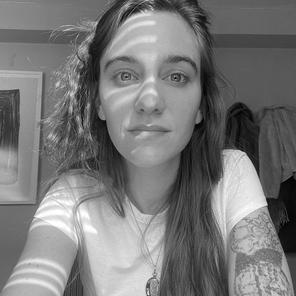All That Is Lost Comes Back
Exile is a word that shifts in scale, adapting to our personal experience. At times, it feels too vast; at others, it seems we cannot fit within it. It is an uncomfortable term, insufficient, yet persistently reminding us of an injustice that forced us into an extreme, hurried decision, often driven by the need to escape and survive. It reminds us that we have been deprived not only of space but also time, that inherent space of freedom that should naturally belong to us.
Yet, exile is not devoid of wonders. The act of fleeing can transform into an opening toward others, both the external and the internal self. In exile, we discover new ways of belonging and even realize that belonging is not always necessary. One can love from outside the circle, and from that point onward, every place we inhabit becomes an imaginary space—created and invented. The true journey may begin only when we accept that there is no return.
Since no two exiles are identical, this collective reflection aims to capture, through images and words, three different experiences of exiles and encounters. All That Is Lost Comes Back. The real question is whether we will know how to wait and how we will prepare ourselves during that waiting.
This project brings together two Cuban artists and a curator, all exiled in the context of the recent years' crisis on the Island. They currently reside in Miami, Montreal, and Chicago, respectively.
Camila Ramírez Lobón presents El Camino de la Virgen (The Path of the Virgin), a book project and a series of drawings that delve into the odyssey of a group of Cuban migrants undertaking a journey fraught with physical and psychological challenges. The narrative centers on Nelda's testimony, while also focusing on various characters, including one who carries an image of the Virgen de la Caridad del Cobre, symbolizing the spiritual and cultural burden migrants bear during their exodus. The book, narrated in the first person, offers a raw portrait of those Latin American transit zones, detailing the social chaos, violence, and brutality faced by migrants, as well as the underlying deep-rooted causes of their despair. Throughout the text, reflections on resilience and virtue that emerge in extreme situations raise questions about the hopelessness that drives these migrants to risk their lives on a clandestine journey.
Amed Aroche introduces the work Todo Lo Que Se Pierde Regresa (All That Is Lost Comes Back). This project, based on an ongoing dialogue that started in 2022 between the artist and Anamely Ramos (curator of this exhibition), articulates photographs and conversations through the rhythms of the diary and the fragment. It explores the inter-geographical imaginaries and emotions that arise from exile. The photographs in this series trace out both physical and imaginary journeys, capturing the converging spiritual, political, and geographic saga of two diasporic bodies. Ramos was exiled from Cuba in 2022 and has not been able to return since. At times, Amed returned to Havana, trying to photograph the city through Anamely's eyes, following the traces of her memories. On other occasions, their conversations led them to places rather hinted or suspected. The resulting photographs are quiet, curious and melancholic observations. These images not only reflect their mourning but also herald the birth of something new: the old homeland forcibly enlarged by its new diasporic settlement. Amed Aroche is an emerging artist and researcher from Cuba who has been living in Tiohtià:ke /Montreal since 2018. With a Bachelor’s degree in Architecture and a Master’s degree in Urban Studies, his academic background enriches his critical and experimental approach to visual arts. Aroche employs methodologies from social sciences, conceptual art, and post-documentary photography to explore the intersection of politics and poetics within the complexities of contemporary life. His work has been featured in collateral exhibitions of the 12th Havana Biennial and in alternative spaces in Cuba, such as Aveces Art Space. Currently, he investigates political imaginaries and affectivities within subaltern experiences, as well as inter-geographical landscapes, positioning himself as an active subject. His artistic practice is deeply committed to alterity, using photographic language to explore new forms of dialogue and reflection.

Anamely Ramos González (Camagüey, Cuba, 1985) holds a degree in Art History from the Universidad de La Habana (2007) and a Master's in Cuban Cultural Processes from the Universidad de las Artes (2014). She is currently pursuing a Ph.D. in Social Anthropology at the Universidad Iberoamericana de México. Since August 2024, she has been a visiting researcher at the University of Illinois, Chicago. Formerly a professor of Cuban and African Art at the Universidad de las Artes de Cuba, she was expelled in 2019 due to political discrimination. For over a decade, she curated exhibitions in abandoned spaces in Havana and Camagüey. She writes for El Estornudo and other independent Cuban journals. As a human rights activist, she participated in the campaign against Decree 349 and was part of the San Isidro Movement. After leaving Cuba in 2021, she has remained active in the diaspora, collaborating with international organizations to raise awareness of human rights violations in Cuba. In February 2022, she attempted to return to the Island twice but was denied boarding by order of the Cuban government.

Camila Ramírez Lobón (Camagüey, Cuba, 1995). Her visual practice focuses on the narration and illustration of a social and political imaginary that subverts the Cuban totalitarian narrative through individual memory. A graduate of the Academia de Arte de Camagüey in 2014 and the Instituto Superior de Arte de La Habana in 2019, she has worked as coordinator of the Hannah Arendt Institute of Artivism (INSTAR), founded by artist Tania Bruguera. Among her solo exhibitions are Epizootia (Zapata Gallery, Miami, 2024) and El país perdido (Aveces Art Space, Havana, 2019). Her work has been exhibited in Havana, New York, Montreal, Buenos Aires, Berlin, Kassel and Prague. Lobón is a columnist for the independent Cuban magazine Hypermedia and a member of the Ánima collective. She has actively participated in independent cultural and civic initiatives that, in recent years, have been at the forefront of advocating for freedom of expression and political rights in Cuba, including the 27N group and the San Isidro Movement.











